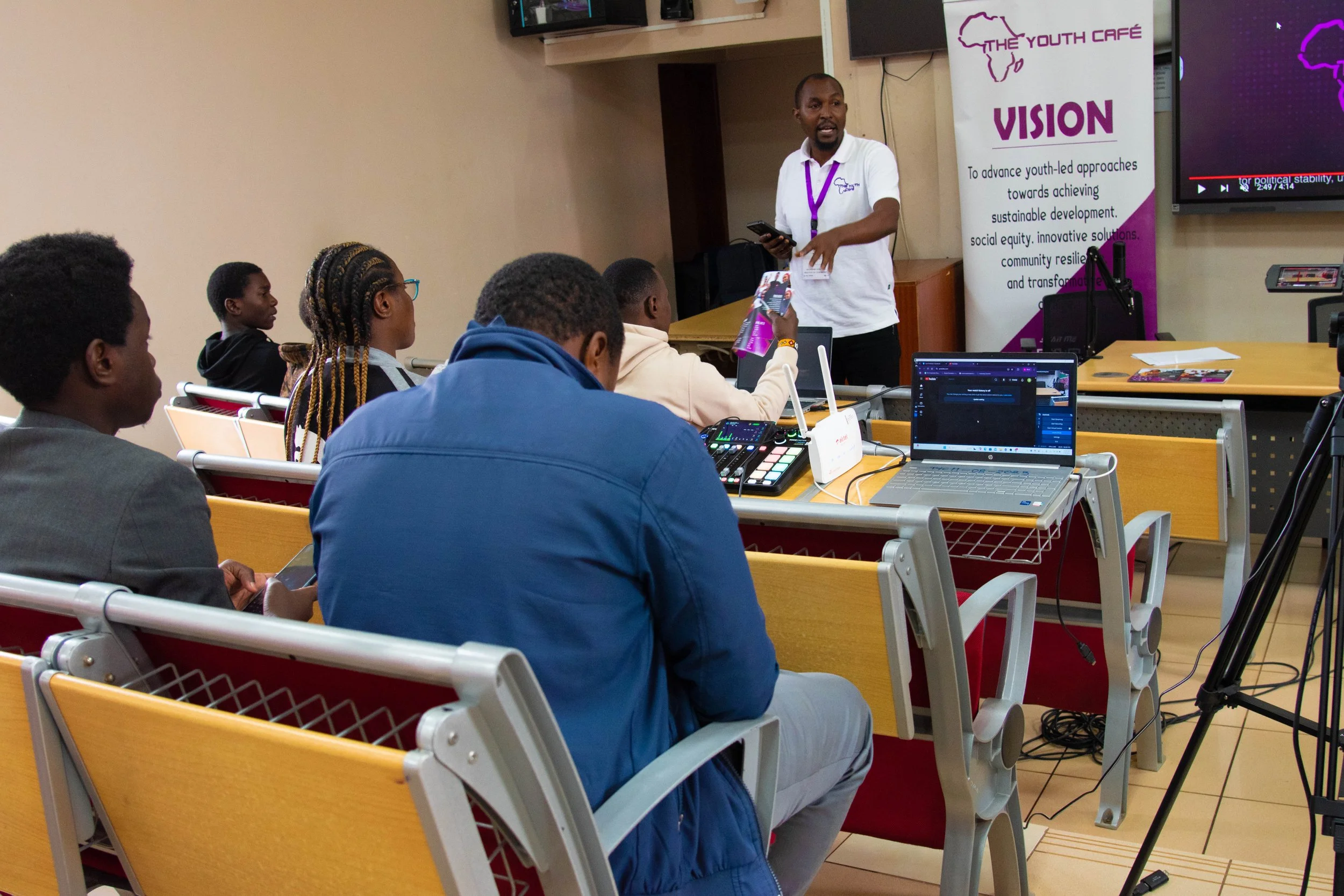CONTEXT
Africa has the youngest population in the world, with more than 400 million young people aged between the ages of 15 to 35 years. This youthful demographic presents both opportunities and challenges for the continent's development. By 2050, the populations of 28 countries in Africa are expected to double, with Ethiopia, the Democratic Republic of Congo, Nigeria, Tanzania, and Uganda among the nine countries that will account for more than half of the world’s population growth.
The trends further suggest that the youth bulge in Africa will increase by 42 percent, and the continent’s youth population is anticipated to continue growing throughout the remainder of the 21st century, more than doubling from current levels by 2055.
Eastern Africa continues to suffer from persistent conflict, political instability, and social unrest
Factors such as ethnic tensions, competition over resources, youth unemployment, political exclusion, and weak governance have contributed to cycles of violence and fragility in the region, and the young people have been disproportionately affected.
Despite these challenges, young people with a powerful demographic advantage represent the potential to drive positive change. However, their role in peacebuilding remains underutilized due to limited access to resources, training, and platforms for meaningful engagement.
The true potential of Eastern African countries to prevent violent conflict and nurture sustainable peace rests in the power of their youth. This vibrant generation holds the creativity, resilience, and energy needed to rewrite the narratives of division and unrest. However, to unlock this promise, it is essential to invest meaningfully in young people by equipping them with the knowledge, tools, and skills necessary for peacebuilding, conflict prevention, and reconciliation.
When youth are empowered as peacebuilders, they can become catalysts for transforming societies, bridging divides, and building inclusive, resilient communities across the continent4
Several efforts at the national, regional, continental, and global levels have been put in place to promote young people’s meaningful engagement in peace and security efforts. For example, the UN Security Council Resolution 2250 on Youth, Peace and Security, passed in December 2015, recognizes the potential and positive contributions of youth to peace and security and provides the overall framework for young people to participate in decision-making making including in peacebuilding.
Similarly, the Youth for Peace (Y4P) Africa Programme was launched in September 2018 in Lagos, Nigeria, as part of efforts to implement Article 17 of the AU Youth Charter.
The African Union envisions a “peaceful and prosperous Africa, integrated, led by its citizens and occupying the place it deserves in the global community and the knowledge economy.
Moreover, many young people are working individually or collectively to enhance, facilitate and promote peace in their communities through peacebuilding and conflict resolution mechanisms, through strengthening community cohesion and reconciliation through intercommunal, religious and ethnic dialogues and events (e.g. exhibitions, plays, sports, concerts); building civic awareness through debates and public campaigns (e.g. peace walks, rallies and social media movements); engaging in community entrepreneurship and livelihoods programs through capacity building and trainings; advocating for the participation and inclusion of youth in decision-making by participating in conferences, producing policy papers, organizing forums; establishing. partnerships, alliances, networks, councils and clubs to connect young peacebuilders, build their capacity and leadership, and promote their participation in peacebuilding frameworks.
To maximise the outcome of their efforts, capacity enhancement becomes inevitable to equip the young practitioners with the tools and skills required to respond to the complex conflicts in the region.
This capacity-building initiative seeks to harness the potential of selected youth in Eastern Africa as agents of peace by equipping them with knowledge, skills, and tools for effective participation in conflict prevention and peacebuilding efforts across Eastern Africa.
GOAL
To strengthen the capacity of youth in Eastern Africa to contribute effectively to peacebuilding and conflict prevention in their communities and countries.
OBJECTIVES
1. Enhance knowledge of young people on conflict dynamics, peacebuilding frameworks, and regional peace architecture.
2. Develop youth skills in dialogue, mediation, advocacy, and non-violent communication.
3. Foster collaboration and network-building among youth peacebuilders across the region.
4. Recognise the role of youth in addressing the root causes of conflict and amplify their contribution to sustainable peace.
TARGET AUDIENCE
• (15)Young leaders (aged 18–35) from Eastern African countries (e.g., Kenya, Uganda, Tanzania, Ethiopia, Rwanda, South Sudan, and Somalia)
• Youth representatives from civil society organizations, community groups, student associations, and faith-based organizations.
• Young peacebuilders, social entrepreneurs, and activists.
METHODOLOGY
• Regional Youth Workshop (3 days): Interactive training sessions on peacebuilding concepts, conflict analysis, mediation, and youth engagement strategies.
• Experience Sharing: Involving experienced practitioners and youth leaders from conflict-affected areas.
• Simulation Exercises and Case Studies: To apply knowledge and practice skills in conflict resolution and mediation.
EXPECTED OUTCOMES
1. Increased awareness and understanding among youth of conflict prevention and peacebuilding tools.
2. Strengthened regional network of young peace actors committed to collaborative peace initiatives.
3. Implementation of community-based youth-led peace initiatives across at least 8 countries in Eastern Africa.
4. Increased understanding of the role of youth in addressing the root causes and effects of conflict in Eastern Africa.
SPECIFIC TRAINING LOGISTICS
Training date: 25–27 July 2025
Times: 9 am–5 pm each day
Venue: Harmony Hotel, Addis Ababa, Ethiopia
Duration: 3 days
Participants: Youth Peacebuilders from the East African Region
Trainer: Mr Philip Visser


